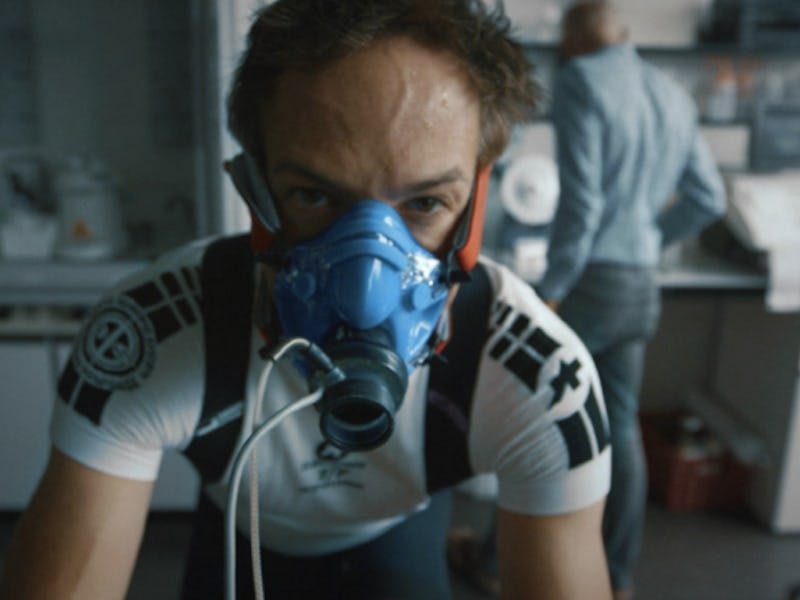The upcoming Netflix documentary Icarus will follow the self-described “mastermind that cheated the Olympics” as he leads what he described as “one of the most elaborate doping ploys in sports history.” The man is Dr. Grigory Rodchenkov, the former chief of Russia’s anti-doping laboratory. In May 2016, Rodchenkhov was forced to move to the United States after breaking the news of his country’s prolific use of athletic performance-enhancing drugs.
In a trailer for Icarus, which was released Thursday, Rodchenkov is heard telling filmmaker Bryan Fogel: “I need to escape. Putin will kill me.”
The documentary is a retrospective, in-depth look at the scandal that rocked the world of sports when Rodchenkov, with help from Fogel, tipped off The New York Times that Russia had a state-run athletic doping program. They revealed that the program routinely provided drugs to numerous Russian athletes — 15 of whom medaled at the 2014 Winter Olympics in Sochi. Rodechenkov admitted that he created and distributed this cocktail and helped Russian intelligence agents collect and replace tainted urine samples with clean urine. By the end of the Olympics, as many as 100 tainted urine samples were replaced.
Rodchenkov’s mix of performance-enhancing drugs became known as the “Duchess cocktail,” which was actually a combination of three steroids: oxandrolone, methenolone, and trenbolone.
The combination of the three steroids reveals that the chemist behind them really knows his drugs. Oxandrolone is a synthetic hormone variant of testosterone that has anabolic and androgenic properties, which relate to muscle building and male sex characteristics, respectively. Medically, oxandrolone is used to help people gain weight after surgery. Methenolone is also an anabolic-androgenic steroid and can boost a body’s muscular strength and mass. Trenbolone is an anabolic steroid that was once widely used in the bodybuilding community but is now banned. Today, it’s legally used by the beef industry to bulk up and increase food-to-mass conversion in cattle.
Rodchenkov chose these drugs because of their ability to help athletes to quickly recover after training sessions. He mixed them with liquor and served them as drinks: male athletes took theirs with Chivas whiskey, while female competitors were given Martini vermouth. The combination of one milligram of steroid cocktail with one milliliter of liquor sped up the absorption of the drugs, which as the Times notes, shortened the “detection window” — the amount of time it takes for the drugs to not longer be detected in an athlete’s urine.
Before doping began, Russian athletes sent Rodchenkov samples of their clean urine, which he would then use to replace their tainted samples. He did so via an elaborate “shadow laboratory” scheme that involved a secret hole for passing samples and a still-unknown mechanism to remove the sample’s locked caps without damage. Rodchenkov would add table salt and water to balance out inconsistencies between urine samples.
The Russian officials admitted publicly in December 2016 that there was an elaborate doping operation that affected its prized athletes, but in Icarus, viewers can sense the immense paranoia and fear that both the filmmaker and Rodchenkov experience as they begin to leak the truth. In its review of the documentary, the Hollywood Reporter summed it up with, “While Icarus technically doesn’t break any news, it certainly scores many points by showing a diabolical wizard so surprisingly laying his secrets on the table.”
Icarus will be released on Netflix on August 4.
